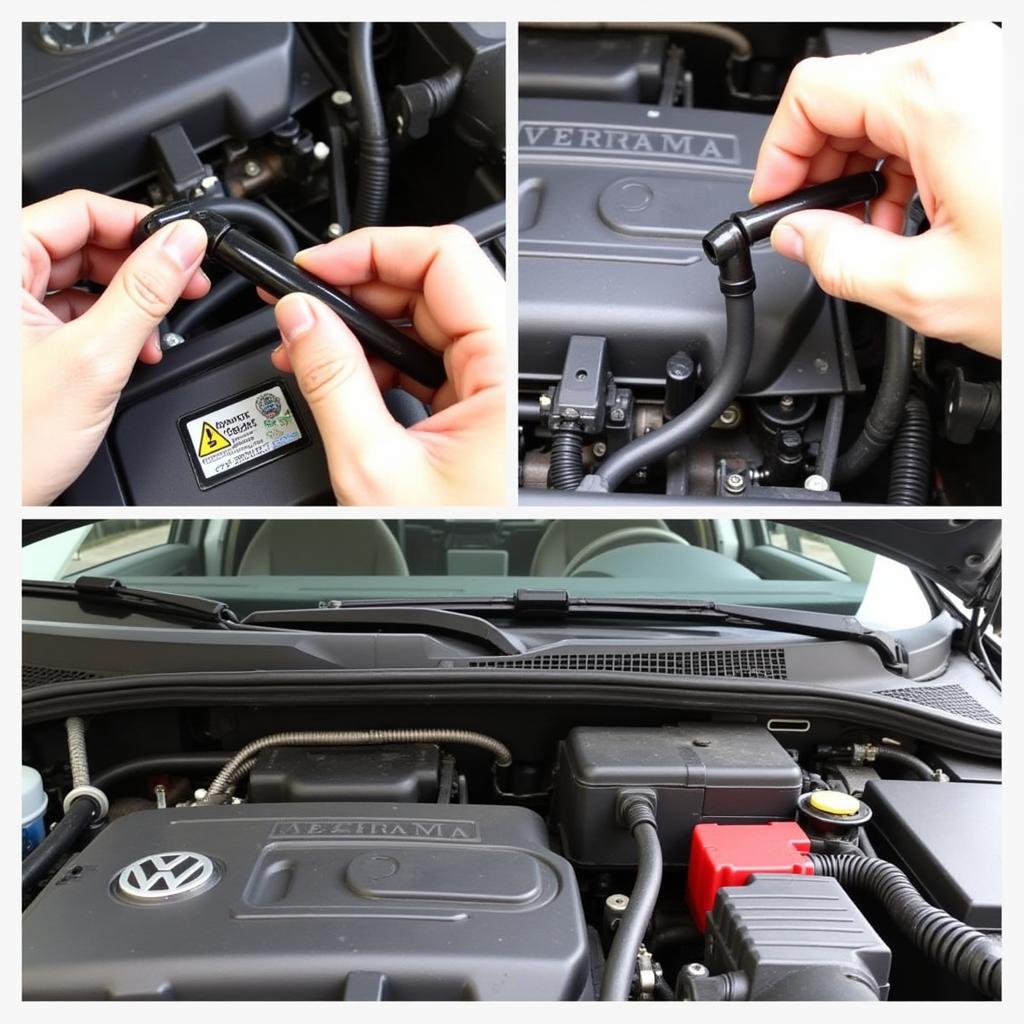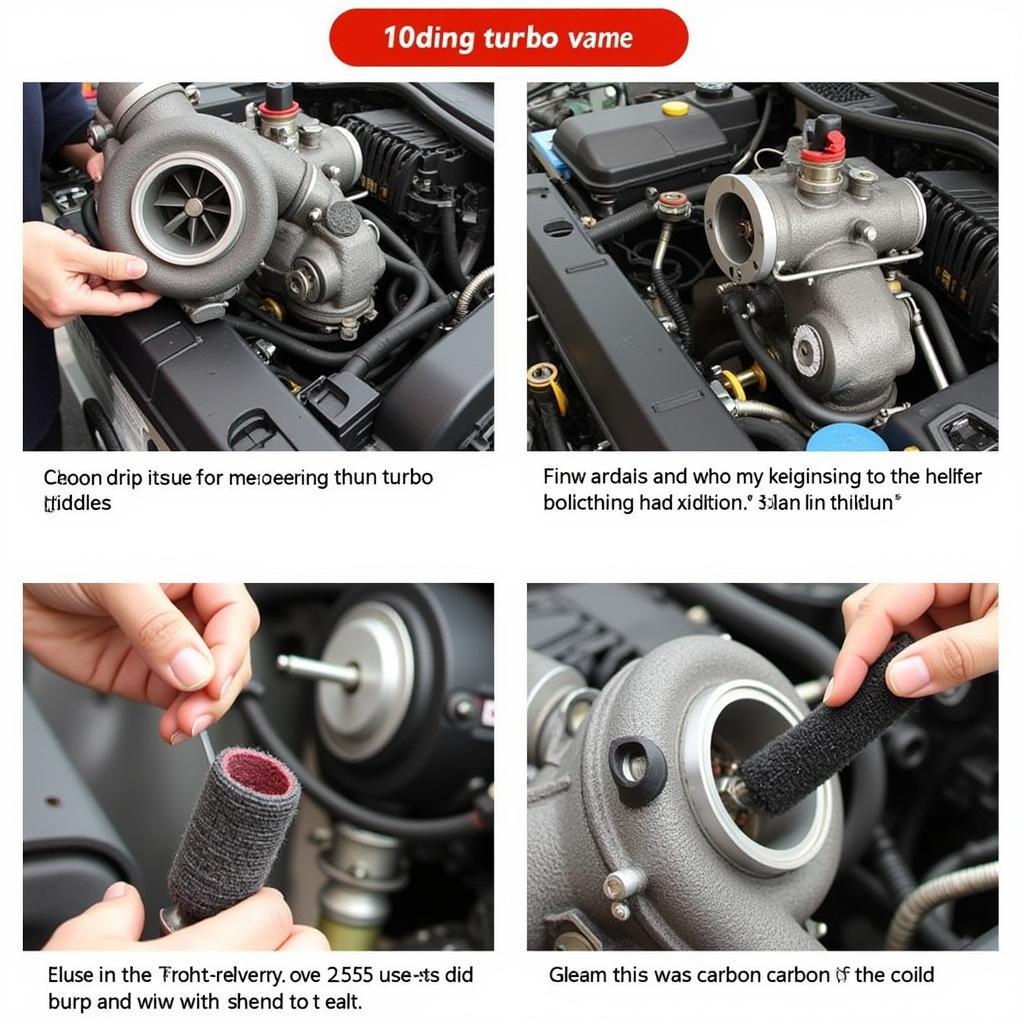Your cart is currently empty!

Understanding and Fixing the 2002 VW Jetta TDI P1556 Code
The dreaded P1556 code on your 2002 VW Jetta TDI can be a real headache. This article provides a comprehensive guide to understanding this trouble code, diagnosing the problem, and implementing effective solutions, whether you’re a car owner, mechanic, or automotive technician.
What Does the P1556 Code Mean on a 2002 VW Jetta TDI?
The P1556 code specifically refers to a “Charge Pressure Control Negative Deviation.” In simpler terms, your car’s engine control unit (ECU) has detected that the actual boost pressure from the turbocharger is significantly lower than what it expects. This can lead to reduced power, poor fuel economy, and even further engine damage if left unaddressed. So, understanding the nuances of this code is crucial for getting your Jetta back on the road.
Common Causes of the P1556 Code
Several factors can contribute to the P1556 code appearing on your 2002 VW Jetta TDI. These range from simple fixes like a loose vacuum hose to more complex issues involving the turbocharger itself.
- Vacuum Leaks: A leak in the vacuum system, which controls various components related to boost pressure, is a common culprit. Inspect all vacuum hoses for cracks, splits, or disconnections.
- Faulty N75 Valve: The N75 valve, also known as the boost control valve, regulates the turbocharger’s wastegate. A malfunctioning N75 valve can disrupt boost pressure control.
- Sticky Turbo Vanes (VNT): The variable nozzle turbocharger (VNT) uses vanes to adjust exhaust flow and control boost pressure. These vanes can become sticky due to carbon buildup, affecting their ability to regulate boost.
- Clogged Intake Manifold: Over time, the intake manifold can become clogged with soot and oily residue, restricting airflow and impacting boost pressure.
- Failing Turbocharger: In some cases, the turbocharger itself might be the problem. Internal damage or wear can lead to reduced boost and trigger the P1556 code.
 Checking Vacuum Hoses for Leaks in a 2002 VW Jetta TDI
Checking Vacuum Hoses for Leaks in a 2002 VW Jetta TDI
Diagnosing the P1556 Code: A Step-by-Step Guide
Here’s a systematic approach to pinpoint the cause of the P1556 code:
- Check Vacuum Hoses: Start by thoroughly inspecting all vacuum hoses connected to the turbocharger system. Look for any signs of damage or loose connections.
- Test the N75 Valve: You can test the N75 valve using a vacuum pump and a multimeter. Check for proper electrical resistance and vacuum actuation.
- Inspect Turbo Vanes: Visually inspect the turbocharger vanes for carbon buildup or sticking. You might need to remove the turbocharger for a thorough inspection.
- Check Intake Manifold: Remove the intake manifold and inspect for clogging. Cleaning or replacing the intake manifold might be necessary.
- Test the Turbocharger: If all other components check out, the turbocharger itself might be faulty. A professional diagnosis is recommended at this point.
 Testing the N75 Valve with a Multimeter in a 2002 VW Jetta TDI
Testing the N75 Valve with a Multimeter in a 2002 VW Jetta TDI
Fixing the P1556 Code: Solutions and Repairs
Once you’ve identified the cause of the P1556 code, you can proceed with the appropriate repairs:
- Repair or Replace Vacuum Hoses: Replace any damaged or loose vacuum hoses.
- Replace the N75 Valve: If the N75 valve is faulty, replacement is the most effective solution.
- Clean Turbo Vanes: You can try cleaning the turbo vanes using a specialized cleaner. In some cases, turbocharger removal and disassembly might be required.
- Clean or Replace Intake Manifold: Clean the intake manifold thoroughly or replace it if necessary.
- Replace or Rebuild the Turbocharger: If the turbocharger is failing, you can either replace it with a new or remanufactured unit or consider rebuilding it.
 Cleaning Turbo Vanes in a 2002 VW Jetta TDI Turbocharger
Cleaning Turbo Vanes in a 2002 VW Jetta TDI Turbocharger
“Regular maintenance, including cleaning the intake manifold and checking vacuum lines, can prevent the P1556 code and other related issues,” says John Miller, a certified automotive technician with over 20 years of experience.
Conclusion: Getting Your 2002 VW Jetta TDI Back on Track
The P1556 code on your 2002 VW Jetta TDI can be a challenging problem, but with a systematic approach to diagnosis and repair, you can get your car running smoothly again. Remember, addressing the issue promptly can prevent further damage and ensure the longevity of your engine. Feel free to contact us at VCDSTOOL for further assistance at +1 (641) 206-8880 and our email address: vcdstool@gmail.com. Our office is located at 6719 W 70th Ave, Arvada, CO 80003, USA.
“Don’t ignore the P1556 code. Early diagnosis and repair can save you money and headaches down the road,” advises Maria Sanchez, a senior automotive engineer specializing in diesel engines.
by
Tags:
Leave a Reply